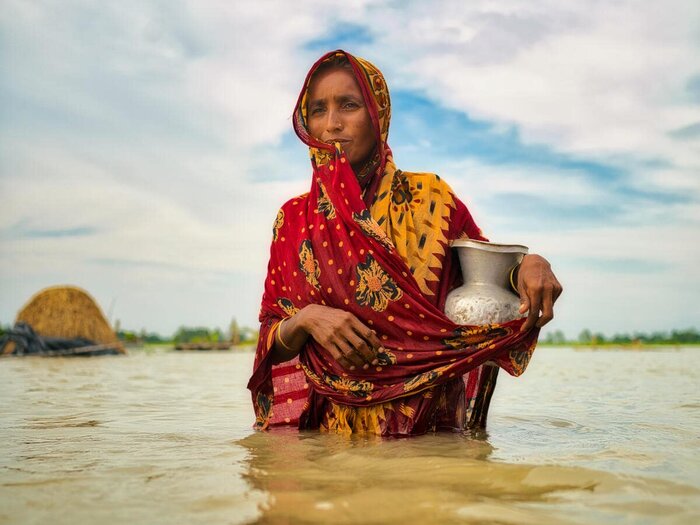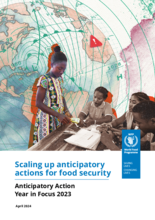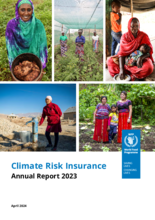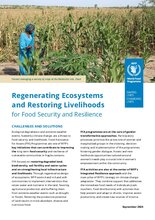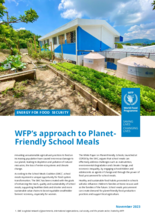Climate action
- 17.9 million
- people benefiting from actions to protect against climate shocks
- 4.1 million
- people protected by forecast-based financing
- 5.1 million
- people protected through climate-insurance policies
Every inhabited region of the world is experiencing the effects of climate change, which is one of the main drivers of global hunger. Over the past decade, 1.7 billion people have been affected by extreme weather and climate-related disasters. Communities who contribute the least to the climate crisis are bearing the brunt of its impacts, with limited means to cope.
With the vast majority of the world’s hungry exposed to climate shocks and stresses, eradicating hunger requires bold efforts to improve people’s ability to adapt. If we don’t help communities adjust to the new reality of the climate crisis, hunger and malnutrition will increase.
The World Food Programme (WFP) is helping food insecure communities to prepare for, respond to and recover from climate shocks and stresses. WFP supported almost 18 million people in 60 countries through climate action in 2023.
WFP programmes support countries and communities to
Anticipate
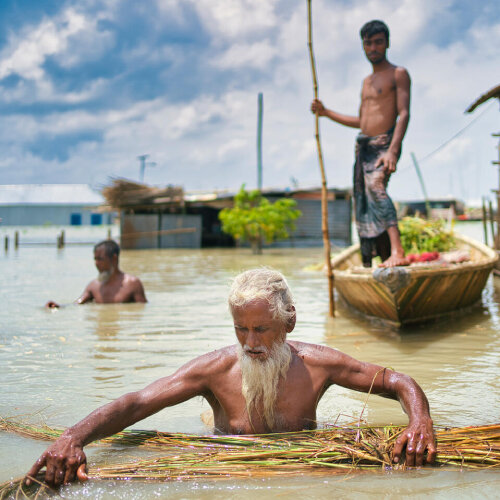
Anticipate climate hazards before they turn into disasters.
Through its Anticipatory Action programme, WFP helps countries and communities to develop early-warning systems to trigger humanitarian action before extreme weather events impact vulnerable families, allowing them to take preventive action such as evacuating assets and livestock, reinforcing their homes and buying food and other essential items.
WFP also provides climate information to smallholder farmers, as well as providing analysis to vulnerable countries on the links between food security and climate risk.
WFP supported governments and communities to manage growing climate risks through anticipatory action and early warning systems in 36 countries in 2023, covering over 4.1 million people. Anticipatory action was activated in several countries, supporting over 638,900 people with cash transfers and over 2.3 million people with early warnings. A total 7.5 million people were supported through climate-information services, receiving weather forecasts tailored to their needs.
Restore
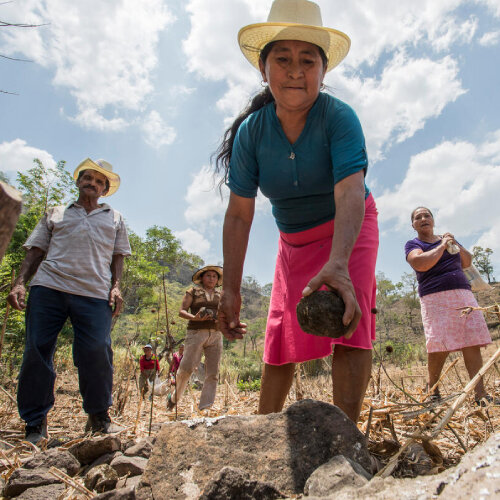
Restore degraded ecosystems as natural shields against climate hazards.
Nature itself is often the best way to protect both people and planet. Rehabilitating ecosystems helps to reduce people’s vulnerability to climate shocks and stresses while also protecting biodiversity and promoting social cohesion. WFP’s Food for Assets (FFA) activities reached 7.9 million people across 47 countries in 2023, contributing to the rehabilitation of over 300,000 hectares of land and the construction of irrigation canals, roads and water points.
Protect
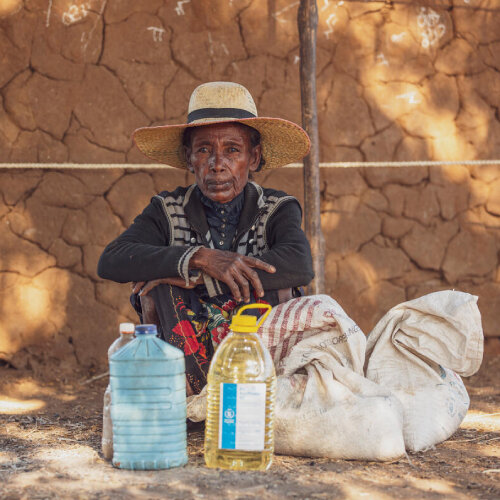
Protect the most vulnerable with safety nets and insurance against climate extremes.
WFP enables communities to withstand shocks through climate risk insurance – which provides people with cash payouts following a climate-related disaster. WFP-supported climate risk insurance programmes provided 5.1 million people in 27 countries with financial protection in 2023. In areas affected by drought, floods and tropical cyclones, insurance payouts enabled WFP to assist nearly 800,000 people.
Find out more about Risk Management, Insurance and Finance
Energize
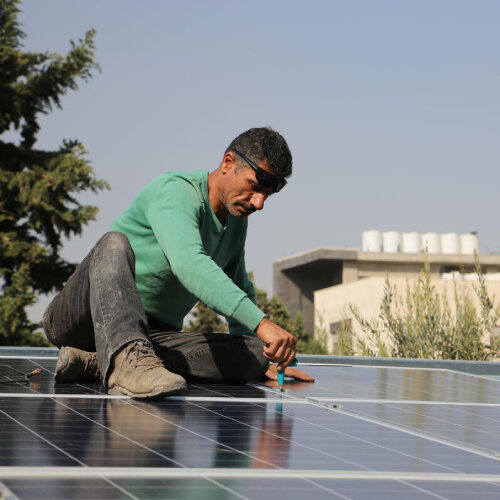
Support schools and communities to access sustainable energy solutions.
WFP promotes clean and modern cooking solutions to households and schools. Improving efficiency and reducing pollution, these help to prevent the negative impacts of traditional cooking on the environment, economic development, and public health.
WFP works with smallholder farmers to disseminate sustainable energy equipment and services that boost food production (for example solar pumps), processing (for example solar mills) and preservation (for example solar fridges), as well as limiting post-harvest losses.
WFP’s sustainable-energy initiatives have reached over 1.5 million people across 14 countries. Energy-saving cooking technologies were installed in 54,000 schools and 135,000 households, reducing reliance on traditional fuels. Additionally, 65,800 people gained access to energy products and services, including solar-powered water pumps for irrigation and lighting systems – boosting productivity and improving livelihoods.
In focus
Tale of two villages: In Malawi, farmers point the way as drought drives hunger
Story | 11 September 2024
Partners of the Caribbean: WFP, collective action and the response to Hurricane Beryl
Story | 20 August 2024
Crop insurance takes root in rural Ethiopia
Story | 13 August 2024
‘We did not cause the climate crisis… but our seasons have changed’: Indigenous food systems are tested to the limit
Story | 8 August 2024
As Niger’s men emigrate, women work to outwit a changing climate
Story | 18 June 2024
Cuba: rethinking farming to face the climate crisis
Story | 26 March 2024

